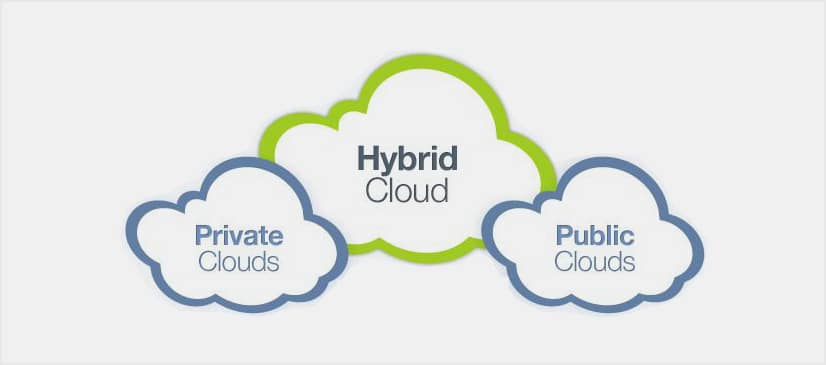When cloud based data centers came into existence, many IT practitioners saw them as a wonderful way to use computing power as a utility. You could demand as much storage, RAM, CPUs and application instances as you want. The cloud expands and contracts to provide users with the resources they needed.
However, a public cloud-based application can encounter some significant security and performance issues. On those occasions, IT developers seek to use a hybrid cloud platform for their applications.
There could be regulatory and security issues that prevent certain types of data being stored on a public cloud – even if the data is encrypted. In such a case, the business will be required to keep this sensitive data on either a private cloud entirely under their control or store it on servers in their IT set up.
Another reason why some part of critical applications might be kept in-house could be extreme performance requirement. If your application resides completely in a public cloud, there may be some performance issues due to the latency of the network hops and the cloud computing infrastructure. By putting some critical functions on internal servers, businesses can improve performance.
A third situation exists where a business hosts its applications, primarily on its own premises, but it relies on a public cloud to provide its rapid expansion of capability on infrequent occasions when the need so arises. This capability is often called “cloud-bursting”.
Managing Hybrid Cloud Applications
An application meant for a hybrid cloud environment needs to be written specifically for such an environment and can be complex to manage. There are issues of installation and configuration management where developers need to specify the conditions governing creation, installation, patch management, rebuilding of applications, and rules that govern the use of external and internal cloud resources.
Businesses also need to define their policies for access control very carefully when a hybrid cloud is being used for security / regulatory purposes. The application needs to ensure that sensitive data does not leave secured premises even if application encounters abnormal working conditions.
A hybrid application also has to be particular about managing its budget and have automated tools built in to exercise control costs. It must generate alerts in time to prevent budgets for public cloud use being exceeded.
Even when your applications are up and running you don’t want to monitor and manage them using a collection of tools. Ideally you want a single pane of glass through which you want to view the performance of your applications. This is a specialist subject in itself and for true peace of mind we strongly recommend you to work with a company that has proven expertise in the field.
At MDL Technologies, we have built proven expertise in managing cloud based applications. You application could be public, private or hybrid cloud based, find out how we can help you manage it better. After all, you want to be concentrating on your business and not your IT infrastructure!







